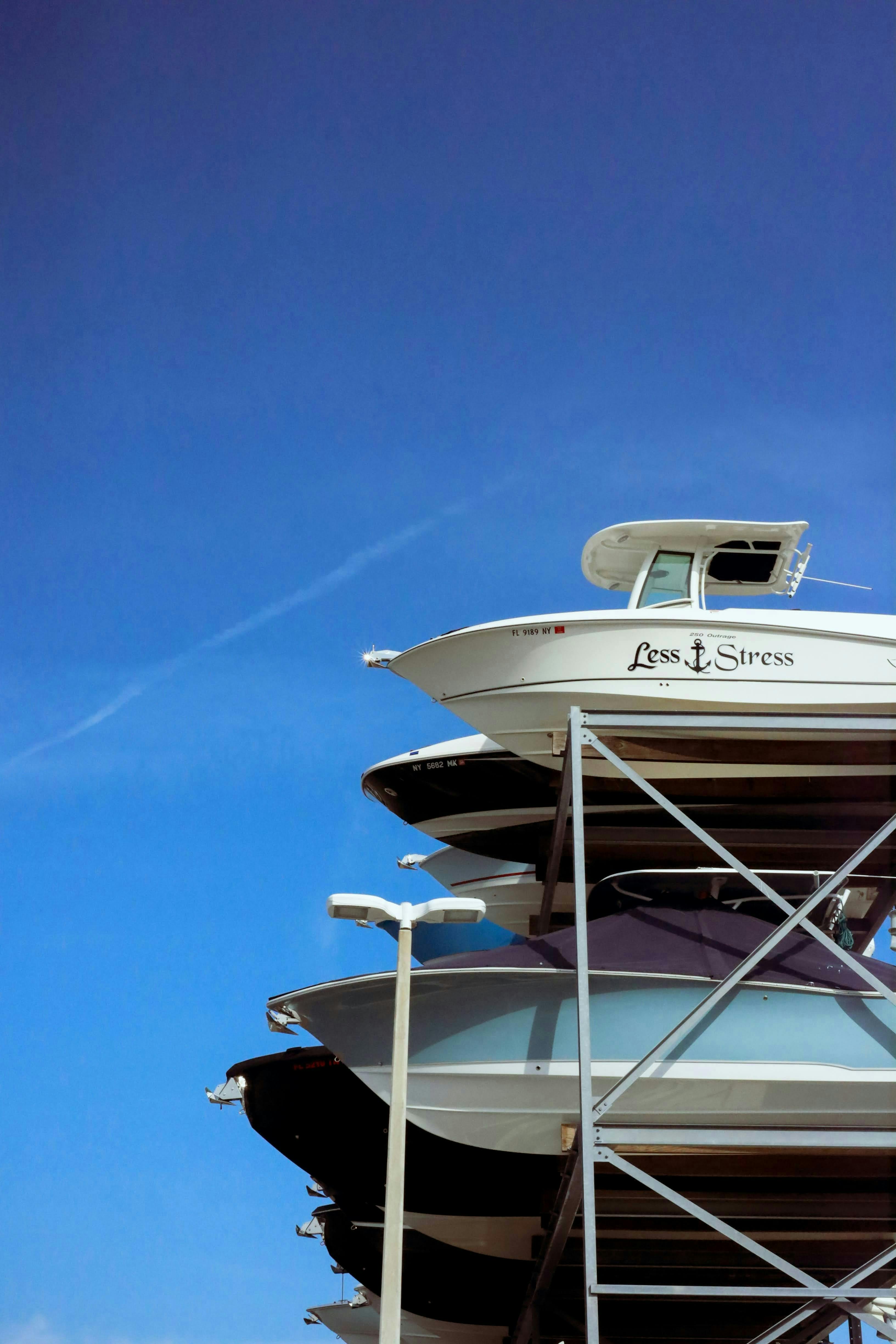
Owning a boat is a dream for many, offering endless opportunities for relaxation and adventure on the water. But before you set sail, it’s crucial to consider where you will store your vessel. Boat storage is an important factor in maintaining your boat's longevity and ensuring it stays in prime condition. This guide delves into the various boat storage options and their associated costs.
Types of Boat Storage
The choice of storage type can significantly impact both the cost and the condition of your boat.
Dry Stacks
Dry stack storage facilities keep boats in covered, multi-level racks. It's a popular choice for smaller vessels, providing excellent protection from the elements. Facilities often include valet boating services where your boat is retrieved and launched for you. See our detailed guide on Navigating the Costs of Boat Storage.
Marina Slips
For easy access to water, marina slips are ideal. They allow you to dock your boat in the water at a marina. Prices vary depending on location and the amenities offered by the marina, such as electricity and water supply.
Indoor Storage
Indoor storage offers the highest level of protection for your boat, especially during off-season months. Stored in a dedicated facility away from environmental threats, this option tends to be more expensive but is beneficial for preserving your boat’s condition over time.
Outdoor Storage
The most economical option, outdoor storage involves parking your boat on a trailer in an open space. While this saves money, it exposes your boat to weather-related wear and tear, so additional protective measures like covers are advisable. For a broader perspective on how storage choices impact overall ownership costs, visit our True Cost of Boat Ownership guide. (Post #36)
Cost Factors for Boat Storage
The cost of storing a boat varies based on several key factors, including the storage type, location, and size of the boat.
Storage Type and Services
The type of storage you choose will largely determine the cost. Premium services like dry stacks or indoor storage come with higher fees but offer more protective benefits. Basic outdoor storage, while less costly, may require additional spending on covers and maintenance.
Location
Storage costs can also vary by geographical location. Facilities in high-demand areas near popular water bodies typically charge more due to the convenience and demand for quick water access.
Size of the Boat
Larger boats require more space and often special handling equipment, leading to higher storage costs. Ensure the facility can accommodate the dimensions of your boat, particularly height for indoor and dry stack options.
Long-Term Considerations
Choosing the right storage solution involves balancing cost with convenience and protection. Consider how often you use your boat and what type of access you need. Seasonal changes also play a role; for example, winter storage may call for more comprehensive protective measures.
Planning Your Boat Storage Budget
To effectively budget for boat storage, start by evaluating how each type of storage aligns with your boating lifestyle and needs. Contact multiple storage providers to compare prices and services. Remember, investing in the right storage can prevent costly repairs and extend the life of your boat.
By understanding the options and costs associated with boat storage, you can make an informed decision that protects your investment and suits your boating habits. Proper storage not only keeps your boat safe but also ready for your next aquatic adventure.
 Jon
Jon